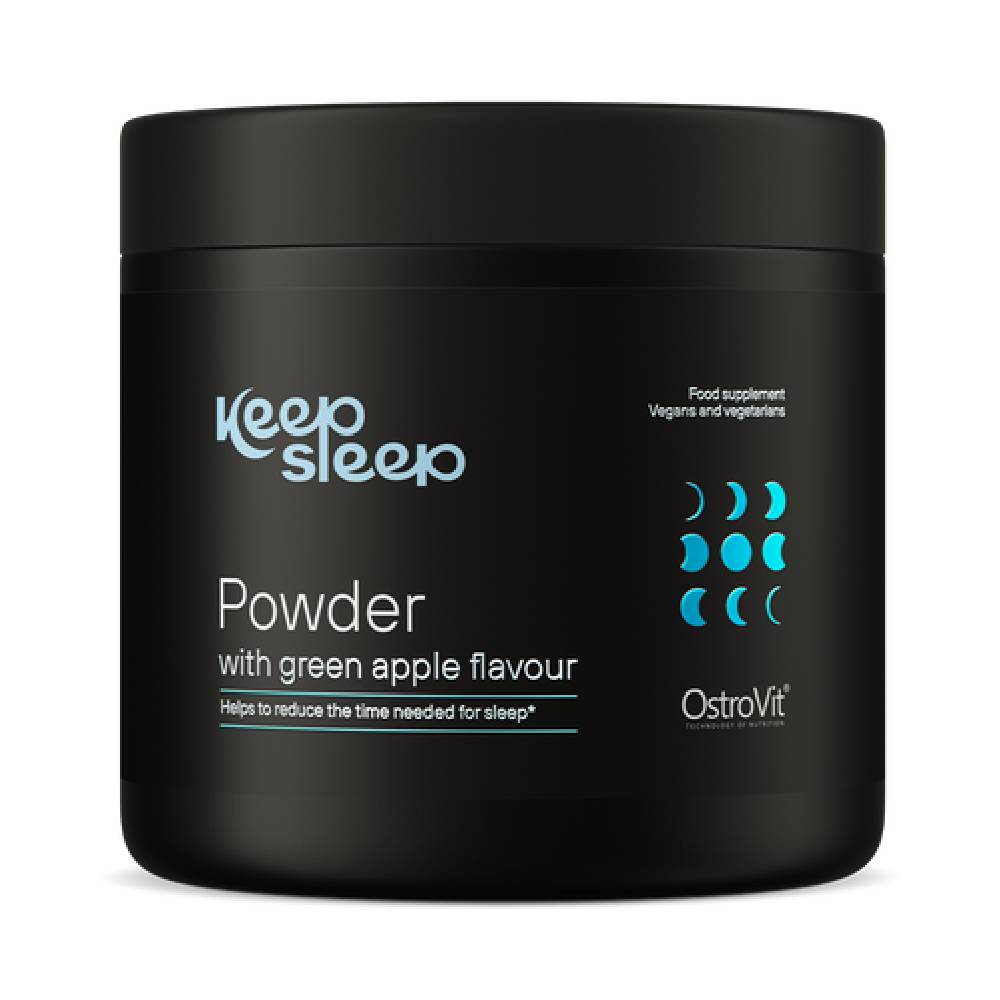Sleep - Tips for getting enough and restful sleep

A good state of health is obtained and preserved following the application of some rules of life that should become habits. Healthy eating, practicing physical exercises, hobbies, the balance between work and free time and quality sleep are the secrets of a fulfilled and long life. In this article, we will particularly analyze sleep and the way it affects physical and mental performance and hormonal activity. But, above all, you will find here scientifically verified tips and methods to fight insomnia, to be able to fall asleep more easily and then to get a deep, restful sleep. Its lack has been linked in research and clinical studies including to the risk of obesity, the development of cardiovascular diseases and the risk of type 2 diabetes.
Here, then, is why it would be good to take measures in time, when you are faced with sleep disorders, before they cause long-term negative effects on your entire body.
content
- About the importance and benefits of sleep - problems and solutions
- Restful sleep and its quality depending on the environment + how to fall asleep faster
1. About the importance and benefits of sleep - problems and solutions
Lack of sleep or superficial sleep affects the human body both physically and physiologically, but also psychologically. Although there are no magic methods or universally valid recipes, there are some things you can do to ensure that you improve the quality of your sleep and, consequently, your overall health.
Avoid sleeping for more than 30 minutes in the afternoon . If a nap after midday can be even necessary and beneficial sometimes, it is not recommended to exceed this interval. And this, because you risk being drowsy for the rest of the day, and at night you won't be able to rest properly.
Of course, not all people work in the same way, but if you know that you have a hard time falling asleep or sleep poorly, it is better to avoid sleeping during the day.
Do not consume coffee in the last part of the day or at night. A coffee can increase energy levels, concentration and physical and mental performance. But excess or consumption in the last part of the day or night does not allow the body to relax so that a deep and restful sleep can be established. Specialists recommend that you stop drinking coffee or other stimulants at least 5-6 hours before going to bed. If you really cannot refrain from drinking coffee, opt for a decaffeinated version.
Establish a regular meal and sleep schedule that you can follow . Try to follow the same daily schedule of waking up, eating and sleeping. Even the disruption of the schedule on days off can have negative consequences during several subsequent days. If you make this effort for a few weeks, you will notice that your body starts to regulate itself, that the feeling of sleep will appear at the same hours and at the right time, and in the morning you will start to wake up rested, even without having to you depend on the alarm clock.
Stay longer in the sun. The circadian rhythm influences human physiology, brain activity and hormone levels. It "dictates" to the body when it should be active and when it would be time to take a break, resting.
The sun's rays contribute to maintaining this circadian rhythm within normal limits. Besides the fact that it will increase your energy level during the day, it will also help you to have a restful sleep at night. It has been scientifically proven that constant exposure to the sun, within reasonable limits, has managed to combat insomnia to a great extent.
Even if you don't have such serious problems with sleep, if you stay in the sun for at least 30 minutes daily, you will find that, in a short time, the quality of your sleep will become better. If it is still not possible to do this or during the cold season, when the sun is weaker and less, constantly expose yourself to a stronger artificial light source throughout the day.
Avoid the phone, TV or computer screen 2 hours before going to bed . The blue light they produce harms not only the eyes, but also sleep. If you have nowhere to go and, for example, you have to work on the computer late at night, use special blue light protection glasses.
Take supplements that stimulate sleep. The most important hormone that sends the information to the brain that it is time to relax and sleep is melatonin. There are pharmaceutical products on the market that contain melatonin, but also other effective sleep supplements , including:
- Ginkgo biloba
- Ashwagandha ( Withania sluggish )
- glycine
- Valerian
- Gaba
- Magnesium
- L-theanine
- Lavender
- Tryptophan
- L-theanine
- L-tyrosine
Do not practice sports or exercise before going to bed . Although the entire medical world supports the regular practice of physical movement or even a sport, they are not recommended late at night. On the other hand, physical activity helps to rest, but it would be good if this was preferably done in the morning or early afternoon.
It is good to know that physical exercises have been proven to be useful for treating insomnia in some clinical studies, but with the observance of this condition, namely that they should not be practiced in the evening.
The reason why sports activity damages sleep in this context is that it stimulates the production of hormones, such as adrenaline and epinephrine, which, unlike melatonin, drive away sleep.
It should be remembered, however, that the constant practice of physical exercises during the day is one of the best methods to have a healthy body. If you add health supplements to these , you could achieve the optimal balance, which will also help you from the perspective of rest.
Do not consume alcohol in large quantities . Alcohol is a stimulant that, consumed in large quantities, can cause a state of agitation, can disrupt hormonal production (including melatonin, so necessary for a good rest), can accentuate snoring, sleep apnea, etc. Avoid consuming alcoholic beverages right before going to bed. Although many people think that they relax and calm down this way, in fact they get exactly the opposite effect.
Avoid eating before going to bed . Meals taken too late put the stomach to work, and the digestion process will eventually demand other functions of the body. Forced to process the ingested food, the body will not be able to relax enough and will remain in a state of wakefulness.
It is true that the hectic life that most of us have makes us sometimes skip meals, but this is a very harmful habit. An organism that did not receive the necessary nutrients during the day will request a larger amount of food in the evening, and this will not only affect your sleep, but also your weight.
If you still have to eat something, choose light snacks that are quickly and easily digested and try to do this at least 2-3 hours before going to bed.
Avoid drinking liquids before going to bed. Many people often wake up at night to urinate. Therefore, it is recommended that you stop consuming liquids an hour or two before going to bed. Establish a daily ritual to consume at least 2 liters of liquids from morning to evening, so as to ensure optimal hydration, but do not extend this into the evening. You should also go to the bathroom right before going to bed, as this can decrease your chances of waking up during the night.
However, if even in these conditions you wake up during the night even several times to urinate, it is good to see a doctor. And this, because urinating too often can signal problems with the prostate in the case of men or urinary/kidney problems in the case of both sexes.
2. Restful sleep and its quality depending on the environment + how to fall asleep faster

Establishing a relaxation routine before bed has proven to be beneficial for many people. Whether it's reading, aromatherapy or listening to soothing music - anything that helps your own relaxation is good.
Relaxation techniques before going to bed also had good effects on people who suffered from chronic insomnia or from various diseases and conditions that prevented them from having a restful sleep.
Among the functional solutions in such situations are meditation, relaxing bath and deep breathing exercises.
The relaxing bath or shower is one of the most used methods to increase the quality of sleep. They also have a positive psychological effect, giving you the feeling of cleanliness, which contributes to an inner state of well-being. It is not for nothing that a large part of the wellness centers have included such sessions in their constant program. Add your favorite aromatic gels or substances (it is recommended that these are also chosen from the aromatherapeutic ones with a calming effect), light scented sticks, opt for a diffused light instead of a strong source, and the recipe is complete!
It is best to do this an hour or two before the time you intended to fall asleep.
A warm bath, a shower or a foot bath before bed can help you relax and improve the quality of your sleep.
Invest in a comfortable mattress . If you think about it, you spend a very large part of your life in bed. Whether you are sleeping, reading a book or simply resting, being awake, after a tiring day, the bed is the place where you take refuge most often when you feel the need to take a rest break.
For a good night's sleep, a comfortable pillow and quality bedding are equally important. Preferably, they should be made of natural fibers, cotton or linen, and the fabric should be soft, so that it does not cause an unpleasant sensation to your skin. Avoid bedding made of synthetic materials, which make you sweat or can irritate your skin.
It has been scientifically proven that a good mattress combats including back pain (especially lumbar), joint pain, shoulder pain and eliminates muscle tension accumulated during the day to a considerable extent.
Have you ever wondered why you always seem to sleep better at a hotel than at home when you are on vacation or on a business trip? Well, it's not a false impression! Hoteliers do not discount the quality of mattresses, pillows and bedding, knowing very well that they considerably increase the comfort of guests.
So, even if you don't plan to change the furniture, make an effort and, if you don't already have a comfortable mattress, invest in a new, high-quality one.
It creates a pleasant atmosphere in the room where you sleep . Asians place great value on Feng Shui - arranging the rooms in the house so that their meaning is optimized, to generate a state of well-being and stimulate positive energy. The truth is that every element matters: the light, the noise level, the comfort and the positioning of the furniture.
In big cities, although the residents get used to the background noise over time, it prevents them from having a good quality of sleep. From this perspective, it is also important to have a good acoustic insulation of the house, which should have quality walls and windows, which will contribute to preventing the penetration of disturbing noise from the outside.
Adjust the ambient temperature to 19-20 degrees Celsius . According to specialist studies, this is the temperature at which the human body feels best. Surprisingly or not, the too high or too low temperature in the bedroom can affect the quality of sleep even more than the noises.
Opt for an air conditioning or air conditioning solution, but be careful not to stand in direct contact with it. Also, the filters should be checked and cleaned constantly, to prevent the development of microbes.

In conclusion, there are a lot of possible methods to put into practice to get a restful sleep. Even if some of these seem more difficult to you, it is worth trying them, because your gain will be important for your health, in the medium and long term.
Photo source: Pixabay.com




















